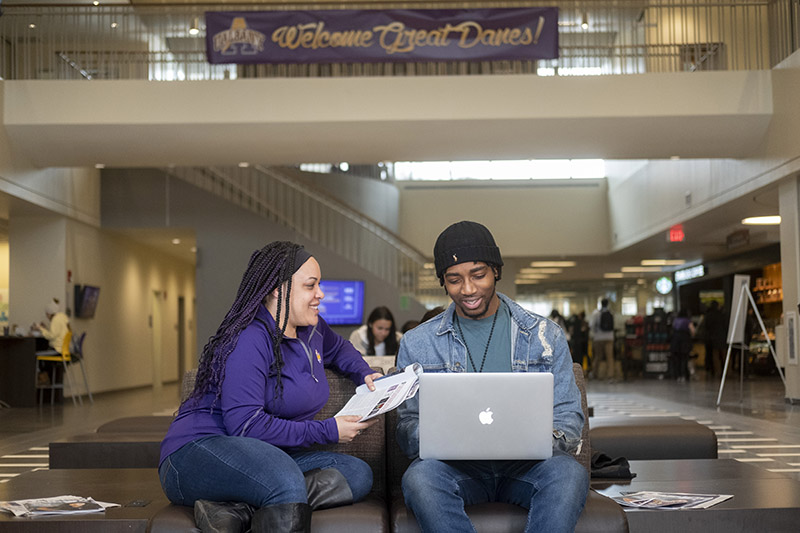Established at the University at Albany in 1988 to carry out urban research both comparative and historical in scope, the Center honors the tradition of interdisciplinary scholarship established by Lewis Mumford (1895-1990).
Mumford was a native New Yorker internationally recognized as one of the most distinguished urbanists of the 20th Century. By promoting broad-based collaboration among urban scholars from a variety of fields and geographic settings, the Center's mission is to further Mumford's ideal of local involvement with global vision. To this end, Center projects and activities range from international urban conferences (July 1999 in Shanghai), to local planning initiatives, to national endeavors examining urban change over time.
What is the Mumford Center?
In 1988, Lewis Mumford and his wife were living in their home in Amenia, in upstate NY. At this time, a group of urban scholars from the University at Albany visited the Mumfords to discuss their plans for a Center whose work would be both comparative and historical in scope. The idea was to create an interdisciplinary venue where scholars could exchange ideas and collaborate on a wide range of projects focusing on the urban political economy.
With the Mumfords' endorsement, the Center was formally established on April 8, 1988 under the leadership of Ray Bromley, Professor of Geography and Planning. Since then, the Center has sponsored a number of local, national, and internationally-based initiatives and gathered together scholars and students interested in urban and regional research. View the list of the past events.
Early projects included a pilot consultant project on public transportation in Kingston, Jamaica; a research project on the employment prospects of youth exiting foster care in New York State; and an interdisciplinary study concerning the dynamics of neighborhood change in the New York metropolis. Under the leadership of John Logan the center developed the Map NY project, the Urban Historical Initiative, including Albany People and Neighborhoods and New York City History, and the Hudson-Mohawk Regional Workshop. It became widely known for the Census 2000 project which produced a series of reports on residential segregation following the 2000 U.S. Census. Logan also developed the national county-level mapping system which was then expanded by Richard Alba and known as 2000+. Logan, now at Brown University, has gone further with projects begun here: Map NY School Districts is now US Schools and School Segregation: Brown at 50 is now The State of Public School Integration. Map NY is now superseded by Map USA and Logan has plans to use the 2010 Census to update his Census 2000 project. Learn more about these projects on the Brown University Spatial Structures in the Social Sciences website.
Under the leadership of director Richard Alba, the Center developed a new initiative on The Second Generation which seeks to inform researchers and the general public about findings concerning children growing up in immigrant families, whether in the United States or in other countries. Alba directs The Children of Immigrants in Schools project, which investigates how children in immigrant families are progressing in school in the U.S. and several countries in Western Europe. The Children in Newcomer Families project, directed by Donald Hernandez, examines how children in newcomer families are faring, especially those growing up in families from Latin America and Asia.
Currently, the Mumford Center continues its involvement with the Urban China Research Network as well as the mapping projects. Researchers are in the process of developing a multi-disciplinary project focused on upstate New York. The Mumford Center works in close collaboration on several of these projects with the Center for Social and Demographic Analysis (CSDA).






